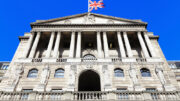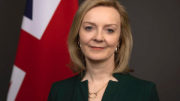Landlords and homeowners across the UK have been cautioned about the prospect of two further interest rate surges expected this summer.
The warning comes after economists voiced concerns over the likelihood that the Bank of England’s Monetary Policy Committee could be compelled to elevate rates from 4.5% as early as June, and potentially once more in the ensuing months. The decision is aimed at curbing inflation, which declined to 8.7% in April, a reduction from 10.1% in the previous month.
The decline beneath the 10% mark was greeted positively, however, it fell short of City expectations. Interestingly, core inflation, which does not account for energy, food, alcohol and tobacco, saw a rise by 6% in the year leading up to April 2023, up from 6.2% in March. This marked the highest rate since March 1992.
Paul Dales, the lead UK economist at Capital Economics, commented, “With inflation proving to be more persistent than the Bank had anticipated, it now seems almost inevitable that the Bank will raise interest rates from 4.50% to 4.75% in June and perhaps even higher in the subsequent months.”
Prices of food and non-alcoholic beverages maintained an upward trend in April, climbing at a staggering rate of 19.1%, albeit a minor drop from 19.2% in March.
James Smith, research director at the Resolution Foundation think tank, expressed concerns over the cost-of-living crisis, stating, “The cost-of-living crisis is evolving not ending with surging food prices now taking centre stage. Escalating food prices are particularly burdensome for low-income families, three-in-five of whom are already indicating that they are being forced to reduce spending on food and other necessities.”
These official statistics were made public a day subsequent to the International Monetary Fund’s prediction that interest rates in Britain would probably need to increase further from 4.5% and “remain high for longer” in order to manage inflation effectively.
The Bank of England has implemented 12 interest rate rises since December 2021 in an effort to regulate inflation.
Currently, a typical tracker mortgage customer is paying around £417 more monthly, while those on a variable rate have witnessed their costs surge by £266.
Data disclosed on Wednesday indicates a slowdown in inflation to 8.7% in the year ending April but is still higher than predicted by some economists.
This has sparked anticipations of another hike in borrowing costs when the Bank of England’s rate-setting Monetary Policy Committee convenes in June.
Andrew Montlake, managing director at mortgage brokers Coreco, expressed, “While on the surface we have witnessed a decrease in inflation to single figures, it has not fallen by as much as expected. What’s more, the significant underlying inflation figure has shown to be more resilient than envisaged. This has triggered a market reaction as it is believed the Bank of England may persist with their policy of rate hikes.”
Sushil Wadhwani, a previous member of the MPC currently serving on Chancellor Jeremy Hunt’s Economic Advisory Council, stated that market indications suggest that interest rates could peak at around 5.5%. He pointed out that numerous people are on fixed rate mortgages “and these haven’t adjusted yet”. He further added, “That’s an adjustment that’s yet to come and it’s deeply worrying for all of us.”





